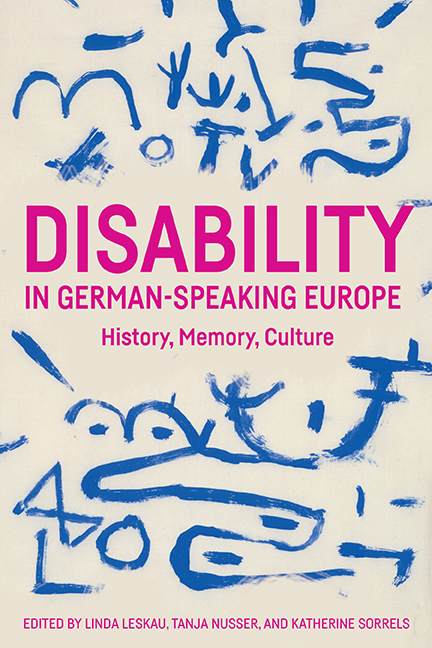3 - Deafness and “Disfigurement” as Relational Disorders: Aron Ronald Bodenheimer’s Psychotherapy at the Zurich School for the Deaf during the 1960s
Published online by Cambridge University Press: 16 July 2022
Summary
Introduction
IN 1968, THE SWISS-ISRAELI psychiatrist and psychotherapist Aron Ronald Bodenheimer (1923–2011) published a case history: Doris: Die Entwicklung einer Beziehungsstörung und die Geschichte ihrer Behebung bei einem entstellten, taubstummen Mädchen(translated as Doris: The Story of a Disfigured Deaf Child, 1974). It was the result of several years of psychotherapy with a deaf teenage girl at the Zurich school for the deaf. The title already names Doris's supposed problems: her deafness and facial difference, and as a result: a relational disorder. While deafness was a trait shared with the other students at the school, her facial difference singled her out. Moreover, as she entered puberty, her behavior changed in a manner that school staff found challenging and disruptive of the institutional order. Her behavior and appearance made her stand out as deviant from the social norm; they marked her as in need of intervention.
What counts as social or physical deviance, as historians and sociologists have pointed out, is highly dependent on changing sociocultural norms. This certainly was true in Doris's case, too. What may have stood out as disfigurement to Bodenheimer in 1960s Zurich might not attract (negative) attention today, in a society that is more diverse and accepting of difference. Doris's hearing loss and facial difference were the results of Waardenburg syndrome, a genetic condition. It is characterized by hearing loss, a white forelock, a broad nasal back, eyes that are wide apart and pale blue or heterochromous, and sometimes skeletal or dental anomalies. Like with all syndromes, the expression of these characteristics varies widely from individual to individual, and we do not know how pronounced they were in Doris's case.
Perceptions of deviance have been intricately tied up with those of disability; as such, they were and are still part of the medicalization of differences during the last two centuries. Both deaf education and psychiatry can be seen as precarious projects to normalize deviance—and to dismiss, exclude, and stigmatize those who could not or were unwilling to be normalized. Indeed, only a few years before, Doris's supposedly disruptive behavior might have led to her dismissal from the school, and/or her transfer to an asylum or psychiatric hospital. In 1962, however, the school's new headmaster, Gottfried Ringli, had established a psychotherapeutic counseling program designed to help students with a supposed behavioral or psychiatric disorder and to support staff.
- Type
- Chapter
- Information
- Disability in German-Speaking EuropeHistory, Memory, Culture, pp. 66 - 86Publisher: Boydell & BrewerPrint publication year: 2022



